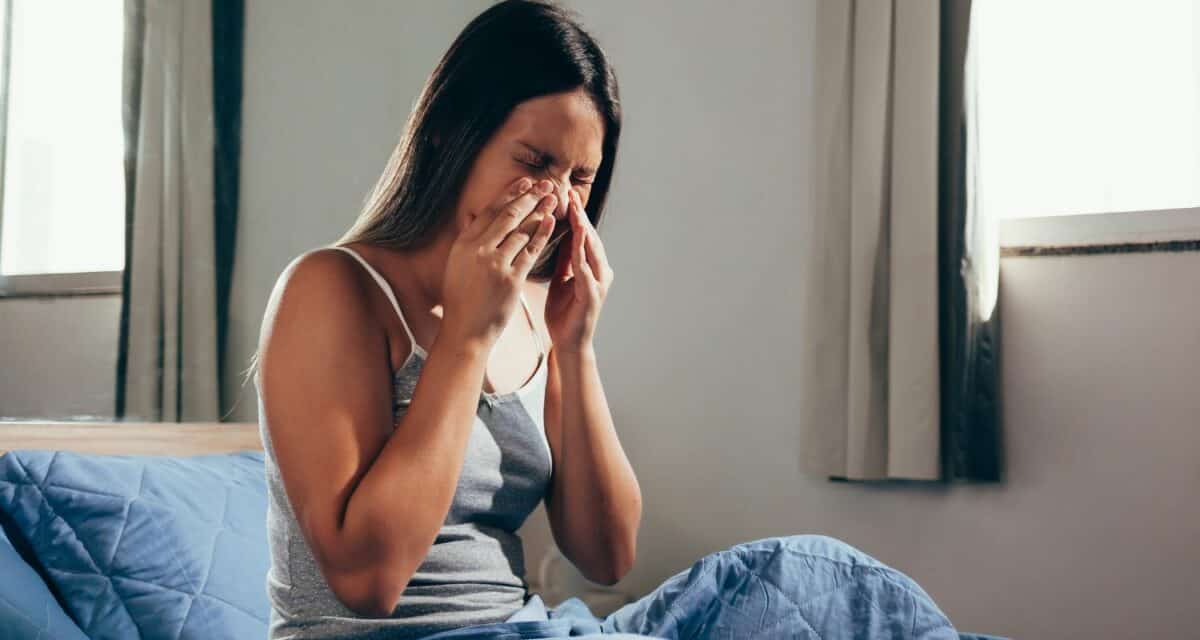It is common to experience sinus issues in the winter. Symptoms may even be worse in the wintertime and compounded by the common cold, flu, or COVID. You may be wondering why sinus problems are worse in the winter and what can be done about it. Well, it is helpful to know that there are effective ways you can manage your sinus issues and navigate the wintertime as healthily as possible .
Sinus Problems in the Winter
The wintertime means lower temperatures and cold weather. But it is specifically the dry air of the winter that contributes to sinus problems. We inhale dry air through the nose which affects the mucus lining of the nasal passages and throat. Mucus not only keeps the nose and throat coated and moisturized, but it is part of the body’s immune system. Dry air can affect the lining of the nose and its mucus in ways that worsen sinus problems. This includes:
- Nasal congestion: when exposed to dry air, the lining of the nose can experience irritation and inflammation. This can lead to producing excess mucus which can contribute to congestion.
- Common cold: many types of viruses can cause a cold, rhinoviruses are the most common. A cold occurs when the membranes that line the nose become inflamed.
- Sinus infections: when mucus does not drain and it accumulates, it can become easier for bacteria to develop which causes a sinus infection.
- Flu: exposure to dry air can reduce production or secretion of the cells that are released in the nose to fight off the bacteria we inhale. This makes us more susceptible to being impacted by a viral infection.
Conditions like the cold and flu are easy to spread and catch during winter months. People typically come into contact with particles in the air that contain bacteria (through inhaling or touching). Because we spend more time indoors and in close proximity to others, this makes it easier to spread. These conditions all contribute to sinus problems or symptoms like congestion, thick and discolored discharge, postnasal drip, tenderness or facial pain.
Treatment for Sinus Issues
Dealing with sinus issues can be unpleasant and uncomfortable. There are useful strategies you can implement to alleviate the symptoms you experience as a result of sinus issues. This includes the following:
- Nasal irrigation: draining and moisturizing your nasal passageways can provide needed relief. You can do this by using a neti pot or other devices that drain your nostrils with water. This drains the mucus in your nostrils which alleviates congestion and stuffiness.
- Decongestants: there are a number of over the counter decongestants you can use to alleviate common symptoms from the flu or common cold. Decongestants come in different forms like nasal sprays, tablets, and liquids.
- Allergy medications: if your sinus issues are caused by allergies, you can use allergy medications like antihistamines to alleviate your symptoms.
- Pain relievers: you can also use over the counter pain medications to alleviate any facial pain around the sinuses you may experience.
These medications can help you manage your sinus issues throughout the winter. It is also important to know when to see a doctor. Be sure to see a doctor if symptoms: do not respond to these medications, are severe, last longer than 10 days.
Tips to Stay Healthy During the Winter
Practicing safety measures to stay healthy during the winter is necessary, especially if you are prone to experiencing sinus issues. A few tips to integrate include:
- Stay warm: avoid staying outdoors for a long period of time to reduce exposure to cold and dry air. Also, use a humidifier in your living space to prevent dry air from circulating.
- Get seasonal flu shot: The seasonal flu shot reduces your risk of catching the flu and experiencing severe symptoms.
- Reduce exposure to bacteria: to reduce your exposure to bacteria you can wash your hands regularly, use hand sanitizer, and clean high touch surfaces often. Another way to reduce your exposure to bacteria is to wear a mask while navigating public spaces.

